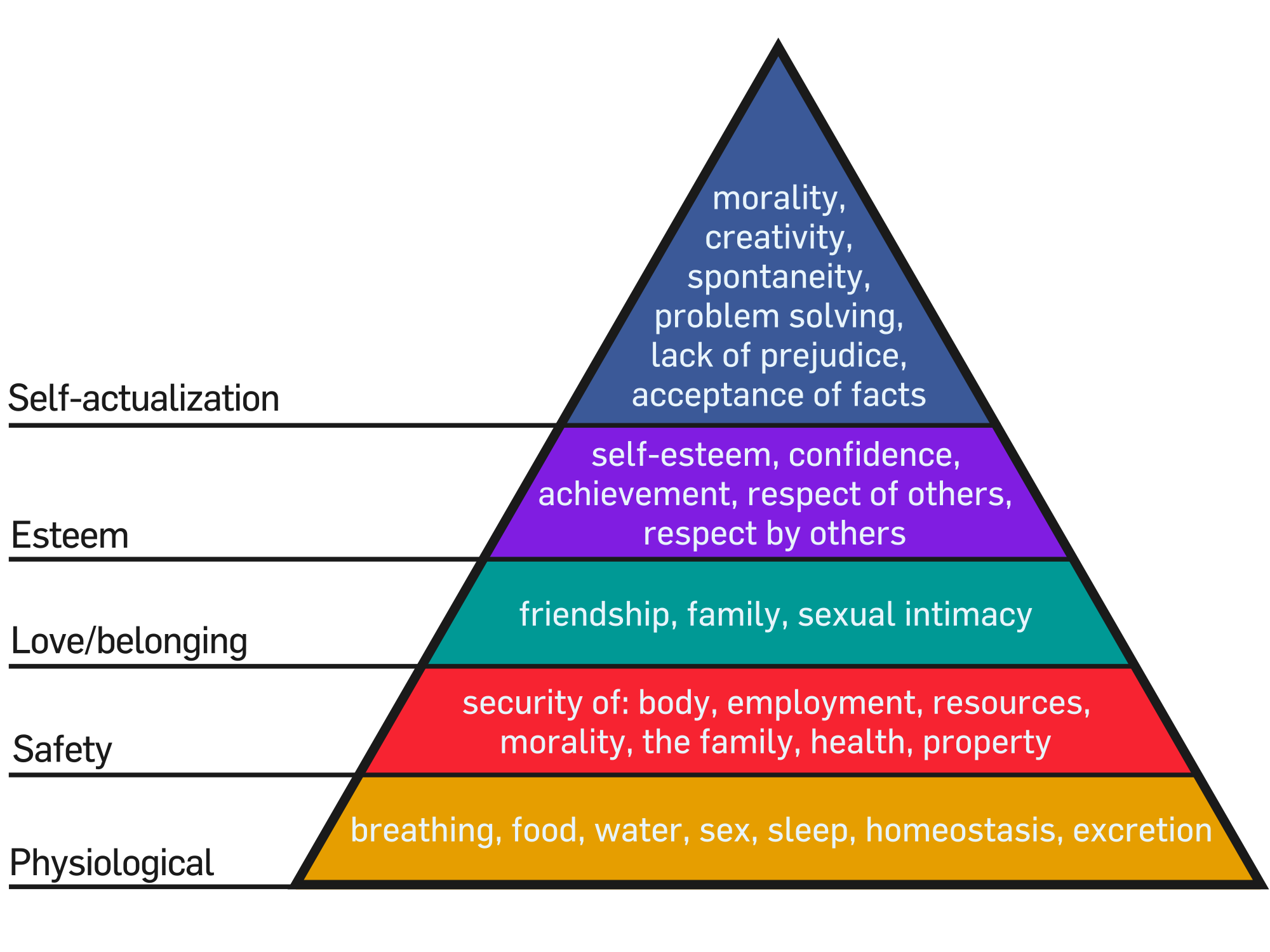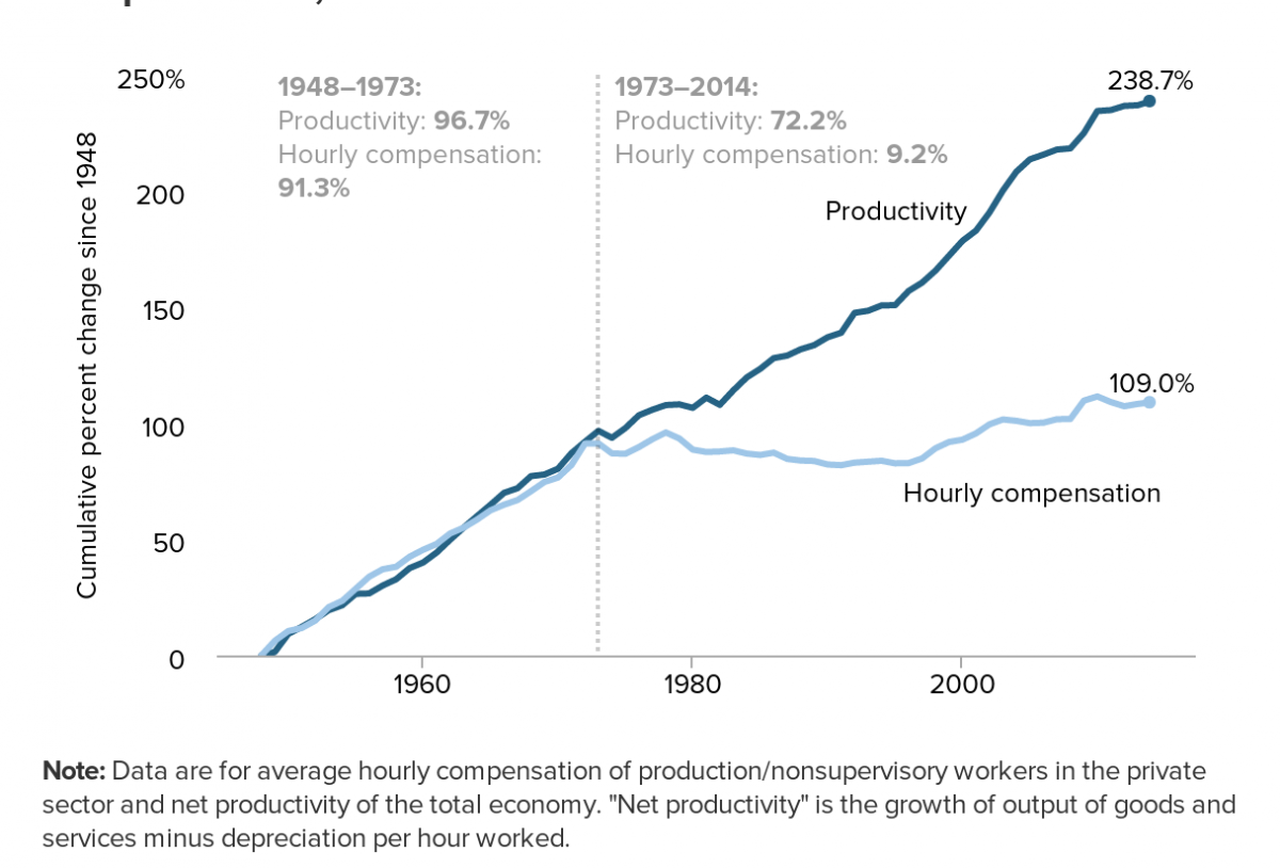Since the advent of capitalism on steroids in the late 1970’s and early 80’s, we have been force fed a narrative that human beings are inherently competitive. This conveniently fits with the neoliberal economical and political ideology that dominates western civilisation. Thatcher and Reagan in particular, painted a bleak one dimensional picture, that life is the “survival of the fittest”, that there was no such thing as society, just winners and losers. Scientists wrote about “selfish genes” and popular culture suggested “greed is good” in an effort to normalise this behaviour. The question is, are we no better than primates who battle for dominance or is this fiction simply packaged as fact in an effort to justify political decisions and cement capitalism as the only feasible system.
Contrary to these views, it is worth pointing out that of the 200,000 years or so our species has existed, it is estimated that only 5-10,000 of these have included a society arranged in a top down manner. A hierarchical structure driven by dominance is not the default setting we are often led to believe. For tens of thousands of years, anthropological research highlights, that groups known as egalitarian hunter gatherers were the norm. Although this is well known by academics in this field, rarely does this information seep into the mainstream media. On the contrary, people are still very much inclined to believe that humans are competitive and self serving.

In an anthropological study reviewing 24 relatively recent, hunter-gatherer communities, it was found that food was shared, not just as a reciprocal action but in order to support those in need. This is distinct from primates, where the dominant individuals often eat first, with subordinates generally only consuming what’s left. It’s important to recognise that this equality highlighted does not depend on a set of genetic features, rather it is held in check by ‘counter’ or ‘reverse’ dominance strategies. Any individual seeking dominance and control was opposed by the group in order to protect themselves and their personal autonomy. Groups were generally united against anyone who appeared too domineering.
Anthropologists such as Professor Christopher Boehm studied these factors, examining data from 48 egalitarian societies investigating how they maintained their particular society. It was discovered that the motivation for egalitarian societies was a basic dislike to being dominated. Selfish and Alpha male behaviour was strongly opposed by the group using mild to moderate methods such as; criticism, ridicule and open expression of disapproval through ostracism, exclusion and death at the opposite end of the spectrum. It was thought that egalitarianism was considered a moral principle, therefore, this type of society consciously, purposefully and assertively maintained it.
Due to these communities actively subscribing to these principles most decisions were made by consensus. Individuals who were unselfish and helpful, were chosen more often as sexual partners or were generally valued in cooperative activities, as opposed to the less social who were regularly shunned. This is thought to have led to a selection of people who were genetically predisposed to pro social and public spirited behaviour. Reasons for this pro-social behaviour are simple, organisms that work together tend to survive. Not only this but inequality leads to instability within a group, leading to conflict.
Decision making was decentralised with no chiefs and organised violence between groups. There were no pervasive ideas of private property, therefore, no need for territorial protection. This way of life was also chronicled by the first European colonists in the early 17th century. It is now considered by some anthropologists that egalitarian communities are not constructed necessarily out of some form of inherent moral purity, but more likely a social choice. One that was utilised for thousands of years in a method to increase their chances of flourishing. So what changed?
It is proposed that humans have lived in a hierarchical society led by the privileged few for about 5000 years. One plausible view by anthropologists; Julian Steward, Leslie White and Robert Carneiro suggests that major changes occurred when society turned to agriculture in order to provide more food for an ever expanding population. It is surmised that this culminated in a surplus, with a need for managers and specialised roles. In turn, this led to stratified social classes.
This idea has been expanded upon, offering that certain self-aggrandising individuals exploited this surplus in an effort to ascend the social ranking system. In relation to groups, it is thought that improved coordination plus division allowed complex societies to out compete more egalitarian ones. This eventual uneven distribution of resources benefitted some more than others, becoming an ingrained feature of society. The arrival of agriculture and trade resulted in private property, inheritance and larger trade networks, only compounding any economic advantages a small number had attained over others.
Despite this, these views still fail to explain fully our deeply stratified modern society. There are numerous theories abound implying that inequality is in some way a favourable trait that cultivates efficiencies, inspires innovation and increases chances of survival. In contrast, a Stanford University study found that unequal access to resources is a destabilising force which increases the chance of group extinction. Two models were used, one using wage inequality, while the other utilised wealth distribution, but the results turned out similarly. In this study and as chronicled in historical events, unequal groups spread in search of further resources. In history this has been documented in the form of colonisation or the invasion of other nations.
All this indicates that, far from inequality spreading because it is conducive to survival, the demographic instability it creates leads to migration, conflict, cultural extinction and physical extinction. In the late 19th century the term homo economicus arose as a criticism to the underlying concepts of self interest, a theory proposed by among others John Stuart Mill. Mill characterised humans as primarily self interested with traits including;
- Flawless rationality – making decisions in a perfectly rational manner without the influence of bias.
- Unlimited cognitive capacity – ability to process any amount of information, regardless of quantity, quality or the complexity.
- Access to perfect information – access to all information needed to make a required decision.
- Narrow self interests – only interested in helping themselves.
- Focuses on maximising utility and profits – primarly the goal is to maximise utility as a consumer, or profit as a producer
- Preference consistency – preference and goals remain relatively consistent over time.
Although now heavily criticised, the narrative underpinning homo economicus is still pushed by governments, corporations, the media, as well as the ruling elite, but often more surreptitiously than previous decades. In the UK during the late 70’s and early 80’s Margaret Thatcher relentlessly and blatantly espoused the idea of individualism, while Reagan pushed a practically identical dire ideological agenda in the US.

In an article published on the website Evonomics, Blair Fix claims that free market ideology, which neoliberalism is based around, consists of a double lie. The first lie offers that the central tenet which postulates acting selfishly maximises the wellbeing of the group, an idea Multilevel Selection Theory disputes. Suggesting, there is always a disconnect between the interest of a group and the interest of the individual within the group. However, for groups to be successful, they must temper the selfish behaviour of individuals, often in the form of punishment.
Secondly there is the age old neoliberal untruth that free market ideology leads to freedom and autonomy, this is often espoused by US libertarians. On the contrary, the evidence declares that it actually cultivates greater obedience and subordination. Free market ideology which promotes individualism is not about freedom and liberty at all, but the accumulation of power. Power according to the author can be split into two; freedom from and freedom to. The former focuses on restrictions such as; freedom from discrimination. This prevents someone from discriminating against you. Secondly, freedom to centres around power, suggesting freedom is a ruse to command people. For example Jeff Bezos is free to run Amazon.
If free market ideology and imbedded individualism really amounts to the accumulation of power, this must surely be linked to an increase in hierarchal structures. What has been noted in the US at both the governmental level and within corporations is hierarchies have expanded. Free market idealists claim to be mortal enemies of the government and yet as regulations have loosened government has grown. One theory is that the free market is not as effective as claimed, needing more and more regulations to keep it viable. Libertarians would probably claim the opposite, offering that increased governmental interference has led to such inefficiencies.
What can’t be denied is the growth of hierarchies in private businesses. Here corporations do not use free market ideology, but multi layered stratified structures, with the complexities of these often proportional to the power accumulated. At this point we can ask ourselves a question; does free market ideology do the opposite of what it claims? Rather than freedom and autonomy, it appears to promote the accumulation of power and an increase in hierarchy.
We must also think about who promotes and attempts to normalise free market ideas? It’s certainly not the small business person. On the contrary, it tends to be owners of huge corporations, like the Koch’s or Jeff Bezos, all in an effort to consolidate money and power. These people are not promoting freedom for all, but rather a way in which they have freedom to command and control others. Along with the bogus notion of ” trickle down economic”, “freedom and liberty” is one of the biggest lies told by ruling elite in order to control the masses, thus promoting unabashed greed while normalising individualism.
Given current worldwide issues including; a pandemic, global warming, a rapidly expanding population, decreasing natural resources and perpetual wars it’s worth considering what Gandhi said.

If ever there was a time to work together, discovering better ways of doing things, unearthing our innate hunter gatherer within ourselves, now is the time. As a society we need to prevent our more narcissistic, selfish, greedy and individualistic members from dictating the terms of our existence, while fighting back in an effort to create a society that works best for as many people as possible.




















 At the same time US households were also fed huge doses of propaganda for decades in the news and in popular culture depicting the Soviet Union as the evil empire. In truth, what the US was trying to deter rather than communism was what’s known as the ‘domino effect’ or the ‘good example’. The basic premise is; if one small country can strive to be a democratic and economically viable country, non-reliant on foreign business, this could possibly convince other countries to do the same. This would fly in the face of US corporate interest as the US exploited (and still do) the low wages that were paid in Latin America in order to increase profits. The ‘red threat’ cover wasn’t only utilised in Latin America, in Vietnam alone total deaths between 1965-1974 are conservatively estimated at
At the same time US households were also fed huge doses of propaganda for decades in the news and in popular culture depicting the Soviet Union as the evil empire. In truth, what the US was trying to deter rather than communism was what’s known as the ‘domino effect’ or the ‘good example’. The basic premise is; if one small country can strive to be a democratic and economically viable country, non-reliant on foreign business, this could possibly convince other countries to do the same. This would fly in the face of US corporate interest as the US exploited (and still do) the low wages that were paid in Latin America in order to increase profits. The ‘red threat’ cover wasn’t only utilised in Latin America, in Vietnam alone total deaths between 1965-1974 are conservatively estimated at